Alzheimer Society urges community to reach out: ‘Make the call’ for Alzheimer’s Awareness Month
It was January 2017 when Naome Howe first reached out to the Alzheimer Society. Her husband Leonard had been diagnosed the previous month with Lewy Body Dementia – the second most common type of progressive dementia after Alzheimer’s disease – at the age of 69. After diving into research on the condition, Naome quickly came to the conclusion that “we were going to need support.”
 However, reaching out for help is not something that always comes naturally to either Leonard or Naome, two people who have many decades of experience providing support, guidance and leadership to others.
However, reaching out for help is not something that always comes naturally to either Leonard or Naome, two people who have many decades of experience providing support, guidance and leadership to others.
Prior to his retirement, Leonard was a seasoned executive, which still comes across clearly when you speak with him – he is deliberate, action-oriented and can easily command the attention of a room. For her part, Naome is a psychotherapist and has many years of experience being the one providing care to others in need.
“The first time you reach out is a big moment,” recalls Naome, “there is a sense that if you cross that threshold of making that phone call, everything will be different than it was before.”
But they both emphatically agree that reaching out – and doing so early – was one of the best decisions they ever made. Despite initial confusion arising from the Society’s name (the Alzheimer Society provides support for all types of dementias, not just Alzheimer’s disease), the Society quickly became a cornerstone in the Howe family’s support system.
Early Experiences with the Alzheimer Society
They both affectionately recall their early interactions with Amanda, a counsellor from the Society with whom they remain in regular contact to this day: “My first impression of Amanda was that she was professional, competent and really knows her stuff,” explained Leonard, adding, “She was great and continues to be great.”
In addition to being a source of information and compassionate ear during difficult times, the Howes explain that Amanda has acted as a bridge to other programs and services that have been supportive on their family’s journey with dementia. From support groups to educational workshops and recreational activities offered by the Society, “there were lots of programs we may have never tried without her encouragement, but we were never sorry that we did,” says Naome.
Dementia Changes Over Time — but the Society is Always There
“Even more recently, when we’ve connected with other healthcare service providers, none of that would have happened if Amanda hadn’t made the first connection for us with these providers,” adds Naome, highlighting the system navigation support that Amanda has offered the couple. “That’s huge,” she adds, “because the system is already overwhelming, confusing and frightening. It’s not that the Alzheimer Society takes away the challenges you have, but there is a sense of knowing the lay of the land that helps a great deal.”
Looking back to 2017 and their early contact with the Alzheimer Society, Leonard and Naome both remark on how much has changed with regards to Leonard’s condition, and the impact it has on their lives. “Things were a lot easier back then,” explains Leonard, “now they’re tricky, you have to strategize your moves and your appointments.”
The couple’s relationship with the Alzheimer Society has been a constant throughout Leonard’s illness, which is vital given the changing nature of his condition. “Over time, it shifts and changes,” offers Leonard, “in my case, the degree of that shift often goes through the roof and it becomes much more complex…there are more things to juggle.”
Words of Wisdom for Others on the Journey
When asked to offer words of wisdom to other individuals or families who may be feeling hesitant to reach out to the Alzheimer Society for the first time, Naome offers this: “you have nothing to lose and you don’t know what you don’t know.”
Naome further remarked that when they first reached out, the Howes worried that they were reaching out ‘too early’ – something their counsellor assured them wasn’t possible. “You don’t even need to know what questions you need to ask,” Naome adds, “because a lot of that has been thought out for you already. It’s a nice way to be introduced to these concepts without feeling like you have to figure it out all at once, and you can pick and choose what’s right for you — and there’s no judgment.”
Both Naome and Leonard agree that having someone such as Amanda walking beside them through this journey has had a significant positive effect on their lives, and they would urge others to seek out the same support. “Our experience is that the Society is so warm and so accommodating to where you’re at, that you can really exhale”, says Naome.
Please click here for the phone number of your local Society office. Our staff are there to take your call!




